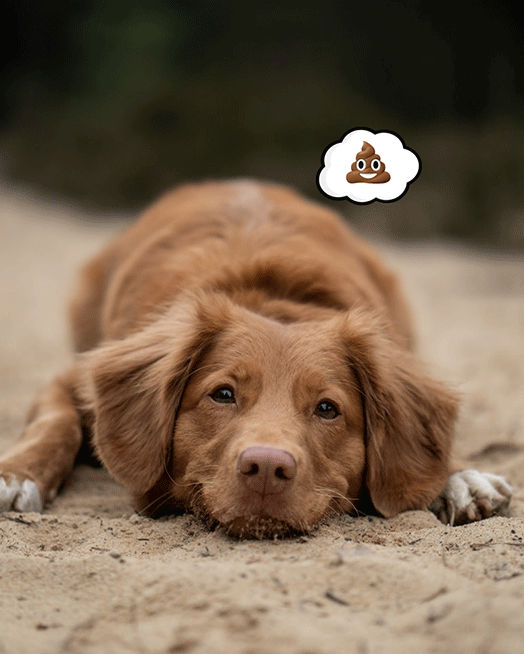It’s the stuff of which nightmares are made. Your best pal, Ringo, the greatest dog in the world, so clever, so cute, looks up, tail wagging with a self-satisfied expression, and then you notice—he’s snacking on cat droppings stolen from their litter or other droppings from outside! Oh no! That’s disgusting! How could you! You’re remembering the last time he licked your face… than start to feel queasy.
It’s gross but true: Many dogs enjoy eating poop. Their own, other dogs’, cats’, they’re not really picky. Whether it’s because the waste retains some of the smells of undigested matter that is appealing, or whether it’s a reaction to boredom is less important than breaking your dog of this undesirable habit, known as coprophagia.
The biggest health issue associated with coprophagia is the potential continued transmission of parasites. If your dog eats another’s stool, parasites contained within it can be ingested, and take up residence. If your dog eats his own stool, he can be re-infected with parasites you are working to get rid of. And yes, if your dog eats parasite-infected stool and then licks your face, he can potentially transmit these parasites to you! Ew.
What can you do to stop this habit?
First, be sure you’re feeding your dog a quality dog food. This will help insure the highest level of digestible content, leaving little if any undigested food matter in the feces. Also, dividing the daily intake into several smaller meals can help keep your dog more satisfied throughout the day, and less interested in “snacking.” Consider vitamin and mineral supplementation, which may increase levels sufficient to dissuade your dog from this nasty noshing. Next, spend time with your dog engaged in an activity. Exercise and playtime will help keep him focused on enjoyable pastimes and less likely to forage out of boredom.
Of course, keep temptation to a minimum. That means clear the yard of waste, and have yummy treats available when you play together in that space. Your dog will start to associate the yard with something even tastier than feces. If your dog lusts after the cat’s litter box, move the litter to a place where the cat, but not the dog, has access to. Or, opt for a covered litter box to prevent trespassing.
If your dog remains undeterred, there are a few additives on the market designed to “ruin” the flavor of your dog’s waste. Some people have found that sprinkling a hot spice, like cayenne pepper, hot salsa, or wasabi on the stool discourages dogs from sampling. Make sure your dog doesn’t have any allergies to these things beforehand, if possible.
When walking your dog in public areas, keep a firm grip on his leash and give a sharp tug and vocal, “NO!” when you see him pulling with interest toward a foreign mound. Distract him with an alternative treat but never punish him since it may reinforce the behavior or result in other undesirable issues.
If your dog is “hooked” and unyielding in his appetite, talk to a vet on Airvet about it and see what else you can try that’s safe and effective. Dogs are never too old to learn new tricks or better habits!
In most cases, by neutralizing your dog’s desire for and access to these forbidden delicacies, you will eventually be able to curb if not cure him of his dirty little secret and once again enjoy those happy kisses!
Want to talk to a vet about this now? Download the Airvet app and get some advice straight from a trusted source in seconds.





